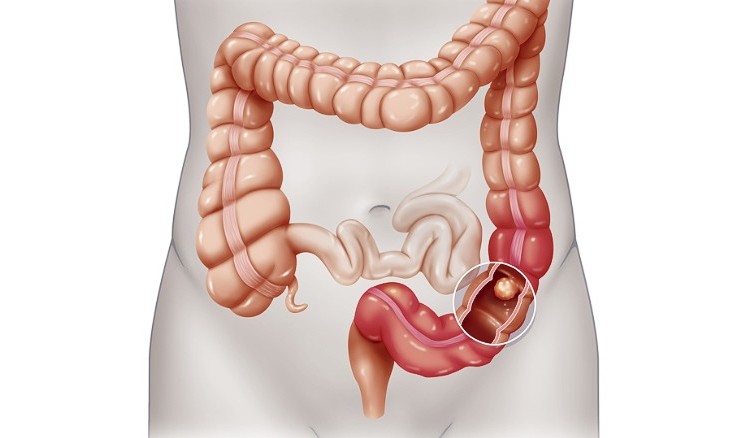Medical
Neoadjuvant Chemotherapy Reduces Colon Cancer Recurrence Rate By 28%, With Fewer Post-Operative Complications, Study Shows
Preoperative oxaliplatin-fluoropyrimidine chemotherapy given to colon cancer patients did not increase the risk of perioperative complications in colon cancer patients and did reduce postoperative recurrence rates, according to the results of the international phase 3/4 FOxTROT trial.

Recently, according to the results of the international phase 3/4 FOxTROT trial, preoperative oxaliplatin-fluoropyrimidine chemotherapy given to colon cancer patients did not increase the risk of perioperative complications in colon cancer patients and did reduce postoperative recurrence rates.

The results of the trial showed that neoadjuvant chemotherapy (NAC) given preoperatively to patients with colon cancer significantly reduced their histopathological stage, reduced the risk of incomplete resection, and improved disease control and reduced the risk of recurrence.
Enrolled colon cancer patients were randomly assigned to either 6 weeks of pre-operative oxaliplatin-fluoropyrimidine neoadjuvant chemotherapy plus 18 weeks of post-operative adjuvant chemotherapy, or only 24 weeks of post-operative adjuvant chemotherapy. Over 98% of patients in both groups underwent surgery for colon cancer.
Patients in the NAC group showed significant histological tumour regression and were more likely to achieve complete histopathological resection than the control group. Not only that, but patients in the NAC group were also less likely to have residual tumour or recurrence within 2 years, with a 28% reduction in recurrence rates in the NAC compared to the control group.

Colon cancer-specific and all-cause mortality rates were similar in both groups and did not reach a statistically significant difference.
Adjuvant oxaliplatin-fluoropyrimidine chemotherapy after surgery is the standard of care for intermediate-to-high risk colon cancer. However, despite adjuvant chemotherapy, recurrence occurs in 20-30% of patients and a cure is not achieved. Previous data found that NAC significantly improved outcomes in other gastrointestinal cancers, and the FOxTROT researchers then hypothesised that preoperative neoadjuvant therapy might be more advantageous than postoperative adjuvant therapy for colon cancer.
The extent of tumour regression due to preoperative neoadjuvant therapy was strongly correlated with data on the absence of recurrence in patients after surgery. Notably, the addition of panitumumab (Vectibix) did not increase the benefit of NAC. In addition, NAC had little benefit in mismatch repair-deficient colon tumours.
The researchers used a modified FOLFOX regimen for treatment in which patients in the NAC group underwent surgery four to six weeks after completing neoadjuvant therapy. Patients in the control group were required to undergo surgery as soon as possible. Dose reductions, delays in treatment and stopping treatment due to toxicity were allowed during treatment, just as in regular clinical practice. The average age of the patients participating in the trial was 63 years.

The researchers found a strong correlation between the risk of tumour recurrence and the degree of histological regression. At five years of follow-up, the recurrence rate was 30% in patients whose tumours had not regressed after NAC, falling to 22% in mild regression and 13% in moderate regression. In the case of patients with complete regression, no one recurred.
The researchers observed that surgery after NAC treatment was associated with fewer serious perioperative complications than direct surgery in the postoperative period. after NAC, the researchers observed fewer anastomotic fistulas or abdominal abscesses, fewer emergency reoperations, and less prolonged hospital stays due to complications.
-
![]()
![]() MedicalApr 04, 2025
MedicalApr 04, 2025Hyperthyroidism and pregnancy are not "irreconcilable"
-
![]()
![]() MedicalApr 03, 2025
MedicalApr 03, 2025Why excimer laser can treat myopia
-
![]()
![]() MedicalApr 02, 2025
MedicalApr 02, 2025Neoadjuvant Chemotherapy Reduces Colon Cancer Recurrence Rate By 28%, With Fewer Post-Operative Complications, Study Shows
-
![]()
![]() MedicalApr 01, 2025
MedicalApr 01, 2025New Research Shows Promise For Bone Marrow Transplant Recipient Patients To Reduce Treatment Side Effects!
-
![]()
![]() MedicalMar 31, 2025
MedicalMar 31, 2025Cabozantinib In Combination With Atelizumab Works Well For Advanced Head And Neck Cancer



